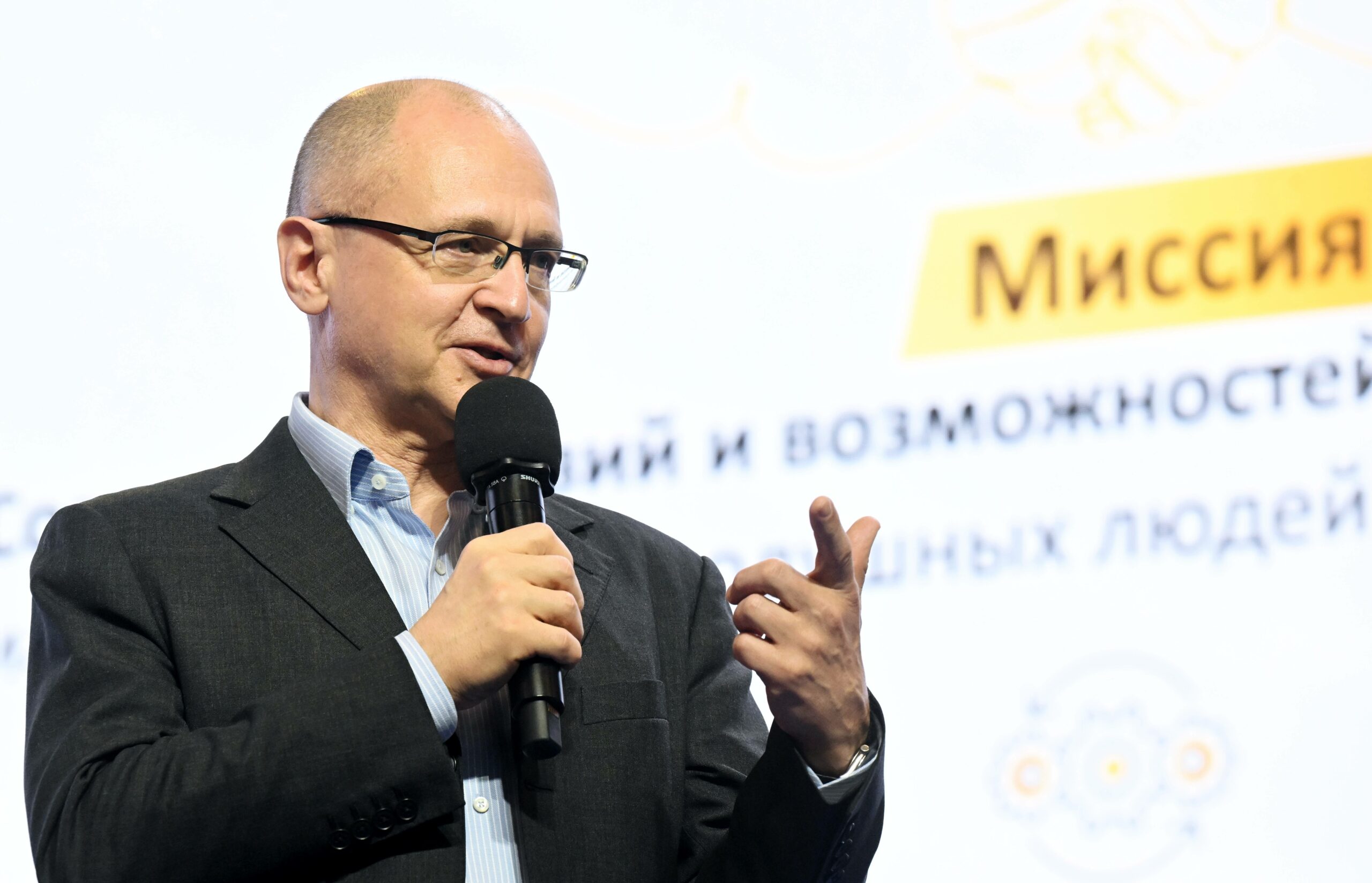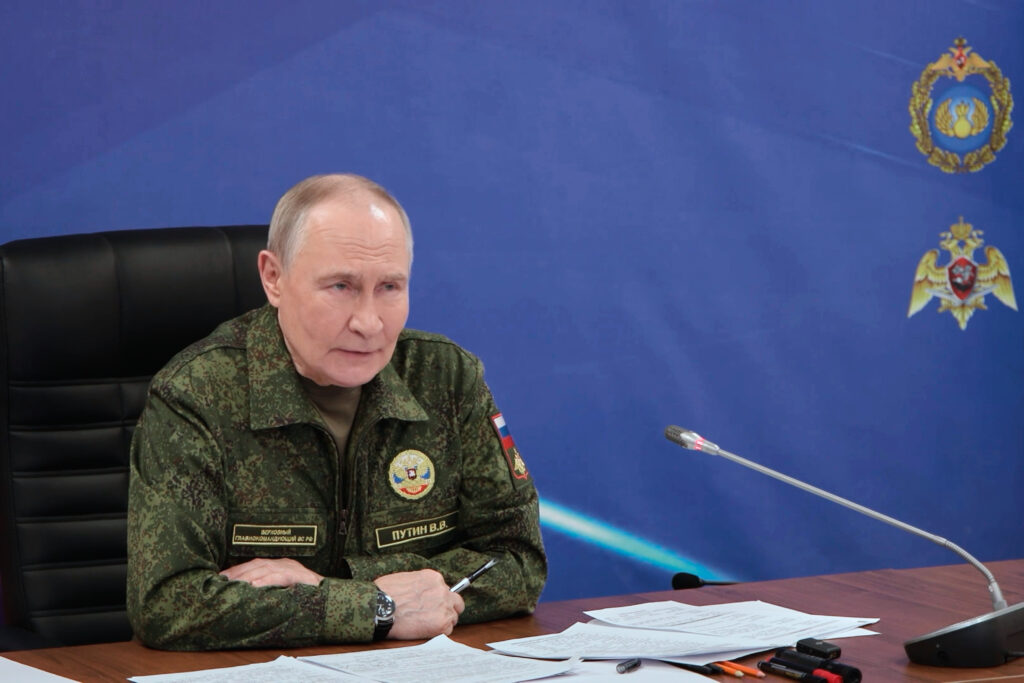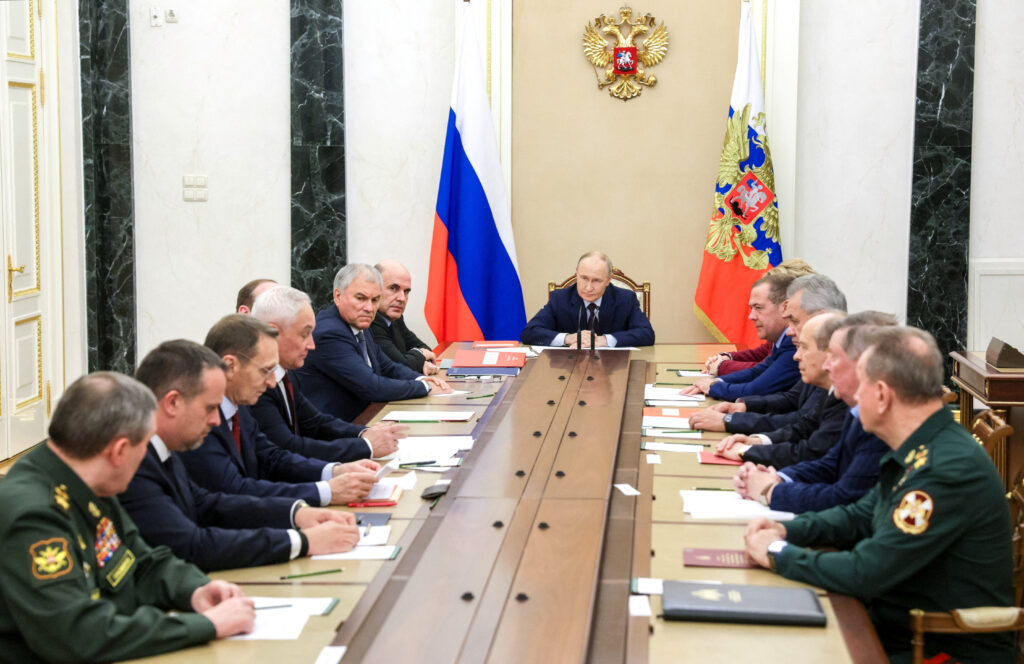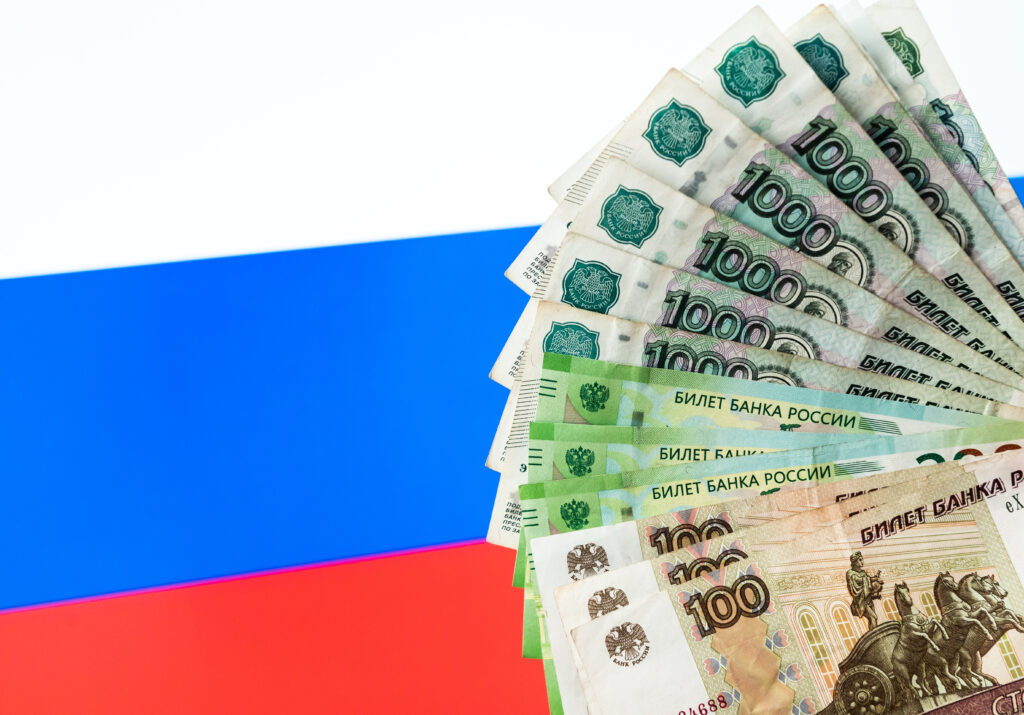Sergei Kiriyenko has been the head of the presidential administration’s political bloc since 2016. During this time, the real power of the bloc and the issues under its control have grown exponentially. It is now a real empire with a plethora of offshoots: «autonomous non-profit organisations,» development institutes and even universities. The production of popular TV series, civil service recruitment competitions and Russian university curricula all depend on Kiriyenko’s department. Of course, the Kremlin’s political bloc still manages the elections and controls the party system as well as regional authorities. If Kiriyenko were to move to another position, it would be easy for him to reorient the external structures in his favour and regain control over them.
Political bloc: a trace in history
The Kremlin’s so-called «political bloc» took a definite shape within the Russian presidential administration in the early aughts, with under Vladislav Surkov at the helm. Throughout the 1990s, Yeltsin’s presidential administration also had departments in charge of regional policy, interaction with the State Duma and the Federation Council, and parties, but for the most part they managed just that: interaction. The structure that gradually began to take full control of Russian politics was formed after the rise of the vertical of power under Vladimir Putin. The Kremlin gained control of parliament through the «United Russia» party (formed through a merger of «Unity», «Fatherland — All Russia», and the «Our Home is Russia», the first two were once implacable enemies). Gubernatorial elections were abolished, and the Federation Council was no longer made up of regional leaders and speakers of the regional parliaments themselves, but of appointed representatives. Vladislav Surkov and his subordinates worked to strengthen the vertical of power, tried to develop an ideology for Putin, and structured a party system that was generally quite loyal to the Kremlin. They controlled elections and tried to undermine and weaken the so-called non-systemic opposition. In addition, the political bloc kept regional elites apart and protected Kremlin appointees, often with no connection to the regions they were placed to govern, from their attacks. Vladislav Surkov had his own think tank, the Effective Politics Foundation, he also curated Rosmolodezh (Federal Agency for Youth Affairs) and the pro-government youth movement Nashi. With whatever funds remained, Surkov and his people controlled the Internet, social networks and online media platforms as the most politicised media space. The main media of the time — television and major tabloids — were controlled by the information bloc of the presidential administration.
So the boundaries of the political bloc were quite clear and defined by the boundaries of public politics, however limited and constrained public politics was at the time. Vladislav Surkov loved the intrigue, and he tried to fashion himself as a demiurge of sorts, a master of sophisticated multi-move schemes who knew how to master and control chaos. That is why even the «United Russia» party had a complex system of checks and balances built into its structure, with a pre-programmed conflict between the Secretary of the General Council and the head of the Executive Committee. Surkov managed the programmed conflicts with a known outcome and had a decisive say in their resolution. This helped to keep the political bloc in the shadows shrouded in secrecy, and created the illusion of its omnipotence and enormous influence: after all, it was not difficult to manage artificially created conflicts and contradictions between actors who were far from being the most influential. At the same time, Surkov played a rather subordinate role even in the appointment of governors. Influential lobby groups had an upper hand in promoting their candidates, while Surkov’s bloc ensured the movement of documents, during which it could actually help one of the contenders for the region’s top job. The regional governors looked up to their patrons and recruited their team from those who worked with their lobby group. The presidential administration could give them recommendations that the governors could have chosen choose to ignore.
Vyacheslav Volodin, who replaced Surkov as head of the political bloc, did not expand his structure’s sphere of influence, but strengthened its control over the terrain it was already in charge of. Volodin’s men have taken full control of the «United Russia» party. The Kremlin used the carrot and stick method to completely subjugate the systemic parties and, by extension, the State Duma. Under Volodin, gubernatorial elections were reintroduced. To some extent, this strengthened the influence of the political bloc in regional politics. Now it not only accompanied the personal paperwork of candidates representing influential groups for their appointment as acting governors, but also managed their election campaigns with the help of loyal political technologists. In general, Volodin’s political bloc operated within the boundaries staked by Vladislav Surkov.
Kiriyenko’s reforms
During his six years as first deputy leader of the presidential administration, Sergei Kirienko has greatly expanded the influence of the political bloc and, more importantly, pushed its boundaries. It still controls elections, the State Duma, regional politics, the systemic opposition and the opposition to the real opposition. However, a closer look at regional politics shows that Kiriyenko’s influence has grown considerably compared to the times of his predecessors. Of course, gubernatorial candidates are still proposed by influential lobby groups, but now these candidates have to be trained in personnel training courses designed by Kiriyenko. This has become an almost inevitable step in the career of a regional head. Neither Volodin nor Surkov had access to the «School of Governors», which works to build/amplify personal loyalty to the head of the political bloc. This «School of Governors» which operates under the auspices of the Russian Presidential Academy of National Economy and Public Administration, is part of a «large political bloc» that includes several structures. Another body, the «Russia — Land of Opportunity» autonomous non-profit organisation organises personnel competitions for the Kremlin, such as «Leaders of Russia.» Its winners go on to work for the federal government, regional authorities and state corporations. And these people, too, fall into the orbit of influence of the «great political bloc» and its leader, because they teach officials the patterns of modern management.
Governors public relation offices are consistently transferred under the control of the «Dialogue» autonomous non-profit organisation established under Kiriyenko. It creates so-called «Regional Management Centres», which «promote» and popularize regional heads of state on the Internet. Accordingly, the scope of interaction of regional authorities with representatives of the «big political bloc» is also growing.
It should be noted that during Kiriyenko’s first year in office, the «United Russia» party was effectively controlled by Vyacheslav Volodin, whose people were in charge of the party’s operational management. All this despite the fact that Volodin’s new position – chairperson of the State Duma — in no way implied control over the ruling party. In 2017, Volodin’s people were ousted from the party and it returned to the orbit of the political bloc.
Internet empire
In recent years, the Internet in Russia has become the main source of information for most Russians. Many of them watch TV out of habit, but then «double-check» information on the Internet; some citizens do not turn on the TV at all. The country’s top leadership has not brought social networks, messengers and large Internet portals under the control of the information block. Therefore, the relatively small capital Kiriyenko received in 2016 has multiplied in value by 2024. Now the head of the political bloc and his people control the largest media property in the country and emphasise its importance to the big bosses in every possible way. The Public Projects department of the presidential administration headed by Sergei Novikov, an associate of Sergei Kiriyenko, exercises direct control over this domain. The aforementioned «Dialogue» organization can be described as the Internet division of the «big political bloc»: it controls large regional and federal VKontakte public groups, as well as the public groups of government agencies. The social network itself can also be attributed to the «big political bloc» — it is now run by Sergei Kiriyenko’s son Vladimir and Stepan Kovalchuk, a member of the Kovalchuk family, which is on friendly terms with the first deputy head of the presidential administration. Another «Internet department of the big political bloc» is the Institute for Internet Development, run by a former member of the presidential administration Alexei Goreslavsky. This agency distributes budgets for the production of various types of content, from patriotic content to TV series on topics predictably popular with the public (e.g. the «The Boy’s Word: Blood on the Asphalt» series) and films (e.g. «The Peasant.») With the help of this Institute, Kiriyenko’s «great political bloc» has become a major, if not the major, player in film production. The Institute also announced the creation of its own television channel called «We», which would broadcast modern series and entertainment programmes. In this way, the «big political bloc» will also gain serious influence in the television environment, which has so far been completely under the control of the information bloc.
Not so long ago, the Russian Presidential Academy of National Economy and Public Administration (RANEPA) became another external structure of Kirienko’s «big bloc» that can potentially operate on its own. The Academy already cooperated quite closely with the presidential administration, but at the same time it was directly subordinated to the Ministry of Education (and later the Ministry of Science), which used to appoint its management. For a long time, RANEPA was headed by Vladimir Mau, an influential system liberal. Now Alexei Komissarov, head of Kiriyenko’s «Russia — Land of Opportunities» project, has become the rector of the university with Andrei Polosin, a close associate of Sergei Kiriyenko and a political technologist, as his ideological deputy as vice-rector. The Russian Presidential Academy of National Economy and Public Administration is gradually becoming a «university for universities»: Polosin has already supervised the creation of an ideological course entitled «Foundations of Russian Statehood». It is expected that the Academy will organise courses for rectors, vice-rectors and other educational managers.
Flexible political bloc
In addition, the boundaries of the «big political bloc» have been expanded through cooperation with the Ministries of Culture, Education and Enlightenment. This was made possible by the ideologisation of these spheres in recent years. The Directorate for Public Projects has gradually become Russia’s main censor, while the Ministries of Science and Education are collaborating with the political bloc in the development and implementation of ideologised courses, lessons and teacher training for these subjects.
As a result, the narrow and fairly simple political bloc with clear boundaries, formed under Surkov that changed little under Volodin, has been completely transformed into Kiriyenko’s «big political bloc» with a plethora of offshoots, and its boundaries are almost «nil»: just like Russia in Putin’s words, it ends nowhere.
The ambitious Kiriyenko has sought to have his voice heard and taken into account on many issues that previously did not concern either Surkov or Volodin. He has systematically worked on expanding his bloc, creating new structures and aligning federal and regional authorities with them. At the same time, Sergei Kiriyenko has long been yearning to work elsewhere, in a less troublesome and more financially rewarding position: i.e. as a prime minister, deputy prime minister or head of a large state corporation like he did previously. It is likely that his dream will come true after the presidential elections. In that case, Kiriyenko will leave his successor a much richer inheritance than his predecessors had left him. What’s more, he will hardly want to lose such an asset. The best scenario for the current head of the political bloc is to hand over the chairmanship to his own man, for example, the head of the Public Projects department Sergei Novikov. Kiriyenko has already managed to plant his successor at Rosatom, and the scenario can be played out again, especially if Putin is satisfied with the election results. But even if another person becomes the head of the political bloc, Kiriyenko still has the opportunity to reorient parts of the «big bloc» towards himself and regain control over them. The example of Vyacheslav Volodin, who for a long time refused to yield to Kiriyenko and his subordinates control over the «United Russia» party, proves that this scenario is quite possible.
A complex structure with an abundance of decisions that require outsourcing is even more flexible in this sense; all the autonomous non-profit organisations and «institutes» are largely in the grey zone and are headed by people who are personally loyal to Kiryenko. They can easily be linked to a government post, be it a prime ministerial or deputy prime ministerial office. For example, the «Dialogue» autonomous non-profit organisation has been working with the government since its inception, and the Institute for Internet Development can easily become an «operator» of the Ministry of Culture. Therefore, the potentially independent part of Kiriyenko’s «big bloc» will most likely remain Kiriyenko’s personal bloc. We can expect him to continue to exercise influence over and shape the social sphere, arts and humanities in Russia, combining corporate management methods with Soviet Komsomol practices.










